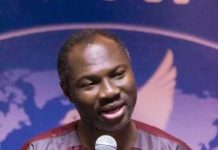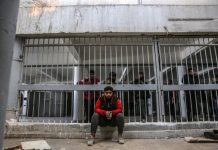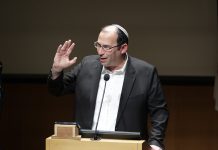 Pope Francis has set out his desire to find a “new balance” in the Catholic church, calling for greater involvement of women in key decisions and a less condemnatory approach towards gay people, divorcees and women who have had an abortion.
Pope Francis has set out his desire to find a “new balance” in the Catholic church, calling for greater involvement of women in key decisions and a less condemnatory approach towards gay people, divorcees and women who have had an abortion.
In a wide-ranging interview with an Italian Jesuit journal, the Pope calls for the Catholic church, the world’s largest Christian church with 1.2bn members, to face up to the need for reform. Offering a dramatic contrast to the traditional conservative approach of his predecessor, Benedict XVI, Francis says the first reform must be one of “attitude”, adding that unless a new balance is found, “the moral edifice of the church is likely to fall like a house of cards”.
The Pope urges Catholics to show “audacity and courage” in their approach to people who, in the past, have been given short shrift by the church, including those who “do not attend mass, who have quit or are indifferent”.
Asked how he would respond to Catholics who are divorced or remarried or gay, he replies: “I used to receive letters from homosexual persons who are ‘socially wounded’, because they tell me that they feel like the church has always condemned them. But the church does not want to do this.”
He goes on: “A person once asked me, in a provocative manner, if I approved of homosexuality. I replied with another question: ‘Tell me: when God looks at a gay person, does he endorse the existence of this person with love, or reject and condemn this person?’ We must always consider the person In life, God accompanies persons, and we must accompany them, starting from their situation.”
Upon his election in March, Pope Francis, or Jorge Mario Bergoglio as he was born in Buenos Aires to Italian parents, was presented as a new start for a church still reeling from paedophilia scandals as well as the Hitler Youth past that dogged his predecessor. But the extent of the shift that Francis represents is only now becoming apparent.
“I have never been a rightwinger,” the Pope says, admitting that when he was a younger man he had “an authoritarian and quick manner of making decisions” that led to “serious problems”.
“Over time I learned many things.”
The interview was conducted by Antonio Spadaro, editor of La Civilta Cattolica, an Italian Jesuit journal. He met the Pope three times in August, and his article, which was translated from Italian into English by a team of five independent experts, has been published in 16 countries.
Spadaro was treated to a rare audience inside the Pope’s private living quarters in the Casa Santa Marta in the Vatican. The Pope has chosen to live in Room 207 in the Casa, rather than in the papal apartment in the Apostolic Palace, because he disliked the inverted funnel of the space: “It is big and spacious, but the entrance is really tight. People can come only in dribs and drabs, and I cannot live without people.”
His living space is spartan and austere, with only a few things in it, including an icon of St Francis, a statue of the patron saint of his native Argentina, a crucifix and a statue of St Joseph asleep.
Asked by Spadaro the simple question: “Who is Jorge Mario Bergoglio?”, the new pontiff says: “I am a sinner. This is the most accurate definition. It is not a figure of speech, a literary genre. I am a sinner.”
Pope Francis does not offer any concrete changes of policy such as a willingness to see women enter the clergy or a loosening of the church’s tough approach to contraception. But he does signal a radical change of approach from which solid reforms might follow.
On women, he begins by saying, quizzically, that he is wary of what he calls “female machismo”, because “women have a different make-up from men”. But he then goes on to say that he wants to “investigate further the role of women in the church The feminine genius is needed wherever we make important decisions.”
He raises the example of a woman with a failed marriage behind her who has had an abortion. She remarries, has five children, and is happy. “That abortion in her past weighs heavily on her conscience and she sincerely regrets it. She would like to move forward in her Christian life We cannot insist only on issues related to abortion, gay marriage and the use of contraceptive methods. This is not possible We have to talk about them in a context.”
On gay Catholics, he adds flesh to the remarks he made in July when he said he would not judge a gay person seeking God. In the latest interview, the Pope adds that “God in creation has set us free: it is not possible to interfere spiritually in the life of a person.”
In the course of the 11,000-word interview, the Pope also gives an insight into his personal tastes. He likes reading Dostoevsky and the German lyric poet Friedrich Holderlin, and has Alessandro Manzoni’s historical novel The Betrothed, which he has already read three times, by his bed.
He admires the paintings of Caravaggio and Chagall, and adores listening to Mozart and Beethoven interpreted by the German conductor Wilhelm Furtwangler. His favourite films are La Strada by Fellini and Roberto Rossellini’s wartime drama Rome, Open City.
google.com, pub-6336011652228911, DIRECT, f08c47fec0942fa0








